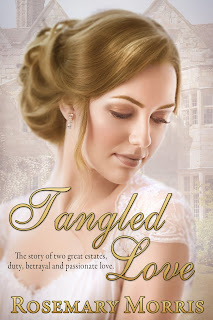I know educators and child experts (and I still maintain that anybody who hasn't actually raised at least one child can not claim to be an "expert" in matters of child-rearing regardless of how many letters come after their names) encourage us to correct children's mispronounciations. Yes, I know a child will all too soon be out in the real world and people other than doting parents and grandparents don't need to be guessing at exactly what a child's trying to say. That child will then definitely need to be able to communicate clearly. But some things I just can't bring myself to correct; to-wit, my three year old granddaughter's pronunciation of Christmas and any phrase associated therewith. Next year she won't ask me "Where my Twissmas twee bow?" Translation: she wants her green and red hair bow sporting a reindeer. She won't advise me in the serious demeanor of a newscaster announcing an event of world consequence "Mimi get me 'tar and a ow-el for my Twissmas twee in my room." Translation: Her mother is to get her a star and an owl ornament for the little Christmas tree set up in her room at her house.
She didn't know at the time she so advised me of her needs that in fact a pink and purple owl, personalized with her name, is winging its way to our house from Miles Kimball, as is a replica of a play station controller personalized with her brother's name and she's gonna freak when it comes in. For the foreseeable future, that ornament, even though hers, will hang here in our house on our tree, her home away from home, and in time, when she's all grown up with a home and family of her own, that ornament and any other ornament designated as "hers" will pass into her no longer tiny hands and hang on her own tree. Because that's what treasured ornaments do. They pass from one generation to another, carrying with them memories from Christmases past and enveloping those who share those memories in a blanket of love so palpable you'll swear you can feel the warmth and softness of fleece.

 Like many families, we've always had the tradition of buying special ornaments for each child each Christmas. Some of them no longer hang on the tree, their "hangers" having fallen victims of age or rough handling, either by said child themselves or one of our fur-babies, and those are arranged in positions of honor on the piano or on shelves or tables.
Like many families, we've always had the tradition of buying special ornaments for each child each Christmas. Some of them no longer hang on the tree, their "hangers" having fallen victims of age or rough handling, either by said child themselves or one of our fur-babies, and those are arranged in positions of honor on the piano or on shelves or tables.

All of them represent our family's Christmases in microcosm. There's "Billy", a chubby ceramic angel my daughter fell in love with at the age of five, "Sweetie Heart", a small painted red heart named by my oldest son when he was three, my youngest son's flock of miniature glass birds that clip onto the tree branches. There's the little red train, the golden river boat, Gandalf the Wizard, the oreo cookie, the rocking horses, the miniature of the leg lamp from A Christmas Story, the replica of the bell and ticket from Polar Express.


Certain decorations, not necessarily ornaments, have their own established places of honor; the acrylic "stained glass" tree topper that's over forty years old, the birdhouse that sits on the fireplace hearth and rattles when moved due to the crayons my grandson fed it when he was four, the Santa Claus I got when I was five, which means he's currently celebrating his 57th Anniversary with me.
Our Christmas heirlooms are so much more than decorations; they're our connection to Christmas Past, our celebration of Christmas Present, our memories that we'll carry into Christmas Future. Y'all have yourselves a Merry Little Christmas now -- you hear?
 |
| Welcome to the Country! |
 |
| Visit at Amazon, on Facebook, and at Books We Love |












.jpg)



.jpg)


